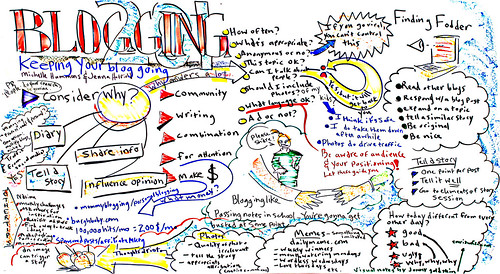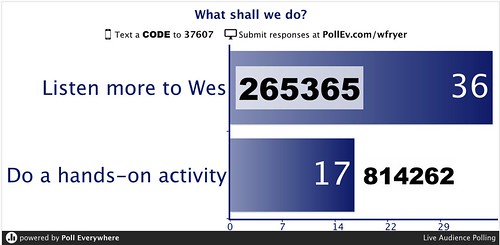In the ever-evolving digital landscape, YouTube has emerged as a dynamic platform for content creators to share their passions, talents, and expertise with a global audience. With over 2 billion logged-in monthly users, the potential for creators to monetize their content is significant. However, success on YouTube requires more than just uploading videos; it demands a strategic approach to monetization. This article delves into various YouTube monetization strategies, offering insights and tips to maximize earnings.
Understanding YouTube’s Monetization Policies
Before exploring monetization strategies, it’s crucial to understand YouTube’s monetization policies. To be eligible for monetization through the YouTube Partner Program (YPP), creators must meet the following requirements:
- 1,000 Subscribers: Your channel must have at least 1,000 subscribers.
- 4,000 Watch Hours: In the past 12 months, your channel must have accumulated 4,000 valid public watch hours.
- AdSense Account: You must link your YouTube channel to an approved AdSense account.
- Compliance with Policies: Your content must adhere to YouTube’s community guidelines, terms of service, and monetization policies.
Once these criteria are met, you can apply for the YPP and start monetizing your content through various methods.
1. Ad Revenue
Ad revenue is the most common and well-known method of monetization on YouTube. When you enable ads on your videos, buy youtube monetization package places various types of ads, such as display ads, overlay ads, skippable and non-skippable video ads, and bumper ads. Here’s how to optimize ad revenue:
- Content Quality: High-quality, engaging content attracts more viewers, increasing the potential for ad views.
- Ad Placement: Strategically place ads within your videos to maximize views without disrupting the viewer experience.
- Audience Retention: Longer watch times and higher viewer retention rates can lead to more ad impressions.
2. Channel Memberships
Channel memberships allow your subscribers to become paying members, providing them with exclusive perks such as badges, emojis, and members-only content. To enable channel memberships, your channel must have at least 30,000 subscribers (1,000 for gaming channels).

- Exclusive Content: Offer members-only videos, live streams, or behind-the-scenes content to incentivize subscriptions.
- Community Engagement: Foster a sense of community by interacting with members through comments, live chats, and exclusive posts.
- Tiers and Perks: Create different membership tiers with varying levels of perks to cater to different audience segments.
3. Super Chat and Super Stickers
Super Chat and Super Stickers are features available during live streams and premieres that allow viewers to purchase highlighted messages or animated stickers. This not only boosts engagement but also provides direct revenue from your audience.
- Engaging Live Streams: Host regular live streams to encourage real-time interaction with your audience.
- Acknowledge Contributions: Recognize and thank viewers who use Super Chat and Super Stickers to create a positive feedback loop.
- Interactive Content: Create interactive content, such as Q&A sessions or live reactions, to encourage more Super Chat contributions.
4. Merchandise Shelf
The Merchandise Shelf feature allows eligible creators to showcase and sell branded merchandise directly on their YouTube channel. To access this feature, you need at least 10,000 subscribers and an approved merchandise partner.
- Branded Merchandise: Design and sell merchandise that resonates with your audience, such as T-shirts, hoodies, and accessories.
- Promotion: Promote your merchandise in your videos, descriptions, and community posts to drive sales.
- Collaborations: Partner with designers or other creators to offer unique, limited-edition merchandise.
5. YouTube Premium Revenue
YouTube Premium is a subscription service that offers ad-free viewing, background play, and access to YouTube Originals. As a creator, you earn a share of the revenue generated from YouTube Premium subscribers who watch your content.
- High-Quality Content: Focus on creating high-quality, engaging content that attracts YouTube Premium subscribers.
- Consistent Uploads: Maintain a consistent upload schedule to keep your audience engaged and coming back for more.
- SEO Optimization: Optimize your video titles, descriptions, and tags to increase visibility and attract a broader audience.
6. Sponsorships and Brand Deals
Sponsorships and brand deals involve partnering with companies to promote their products or services in your videos. This can be a lucrative revenue stream, especially for creators with a large and engaged audience.
- Authentic Partnerships: Partner with brands that align with your content and audience to maintain authenticity.
- Clear Disclosures: Always disclose sponsored content to comply with YouTube’s policies and maintain transparency with your audience.
- Negotiation Skills: Develop strong negotiation skills to secure fair compensation for your promotional efforts.
7. Affiliate Marketing
Affiliate marketing involves promoting products or services and earning a commission for each sale made through your unique affiliate link. This strategy can be highly effective when integrated seamlessly into your content.
- Relevant Products: Promote products or services that are relevant to your niche and audience.
- Honest Reviews: Provide honest and thorough reviews to build trust with your audience.
- Call-to-Actions: Encourage viewers to use your affiliate links by including clear call-to-actions in your videos and descriptions.
8. Crowdfunding
Crowdfunding platforms such as Patreon, Kickstarter, or GoFundMe allow your audience to support your content creation financially. This can be a stable source of income, especially for creators with a dedicated fanbase.

- Exclusive Rewards: Offer exclusive rewards to your crowdfunders, such as early access to content, personalized shoutouts, or special merchandise.
- Regular Updates: Keep your supporters informed with regular updates on your progress and future plans.
- Transparency: Be transparent about how the funds will be used to build trust with your supporters.
9. Online Courses and Workshops
If you have expertise in a particular area, consider creating online courses or workshops to share your knowledge with your audience. Platforms like Teachable, Udemy, or Skillshare can help you reach a broader audience and generate additional income.
- Valuable Content: Ensure your courses or workshops offer valuable, actionable insights that your audience can benefit from.
- Promotion: Promote your courses through your YouTube channel, social media, and email newsletters.
- Interactive Elements: Include interactive elements such as quizzes, assignments, and live Q&A sessions to enhance the learning experience.
10. Licensing Your Content
Another way to monetize your YouTube content is through licensing. This involves allowing other creators, media outlets, or companies to use your videos in exchange for a fee.
- Unique Content: Create unique, high-quality content that others may want to license.
- Professional Network: Build a professional network to increase your chances of licensing opportunities.
- Clear Contracts: Ensure that all licensing agreements are clear and legally binding to protect your rights as a creator.
Conclusion
 Monetizing a YouTube channel requires a multifaceted approach, combining various strategies to maximize earnings. By understanding and leveraging ad revenue, channel memberships, Super Chat, the Merchandise Shelf, YouTube Premium revenue, sponsorships, affiliate marketing, crowdfunding, online courses, and licensing, creators can diversify their income streams and achieve sustainable growth.
Monetizing a YouTube channel requires a multifaceted approach, combining various strategies to maximize earnings. By understanding and leveraging ad revenue, channel memberships, Super Chat, the Merchandise Shelf, YouTube Premium revenue, sponsorships, affiliate marketing, crowdfunding, online courses, and licensing, creators can diversify their income streams and achieve sustainable growth.
Success on YouTube is not just about quantity but quality. Consistently creating high-quality, engaging content that resonates with your audience is paramount. Additionally, staying informed about YouTube’s ever-evolving policies and trends will help you adapt and thrive in this competitive landscape.
Remember, building a successful YouTube channel takes time, dedication, and persistence. By implementing these monetization strategies and continuously refining your approach, you can turn your passion into a profitable venture. Happy creating!

